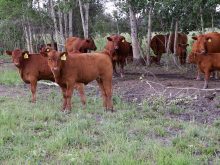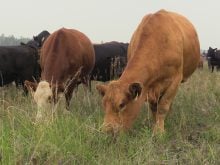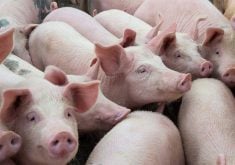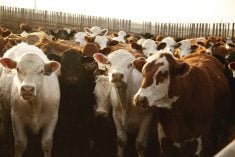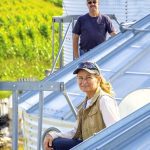OLDS, Alta. – Pat Lyster found winning the red ribbon at the recent Olds Fair especially satisfying. That’s because his horned Dorset ram, a heritage breed, beat out all other sheep breeds at the fair to win the supreme championship.
The horned Dorset is just one of a number of rare livestock and poultry breeds Pat and Lee Lyster and their son Rocky maintain at their Coyote Acres Ranch near Fawcett, Alta.
Lyster has a special interest in preserving heritage breeds such as the Horned Dorset, Shropshire sheep,
Read Also
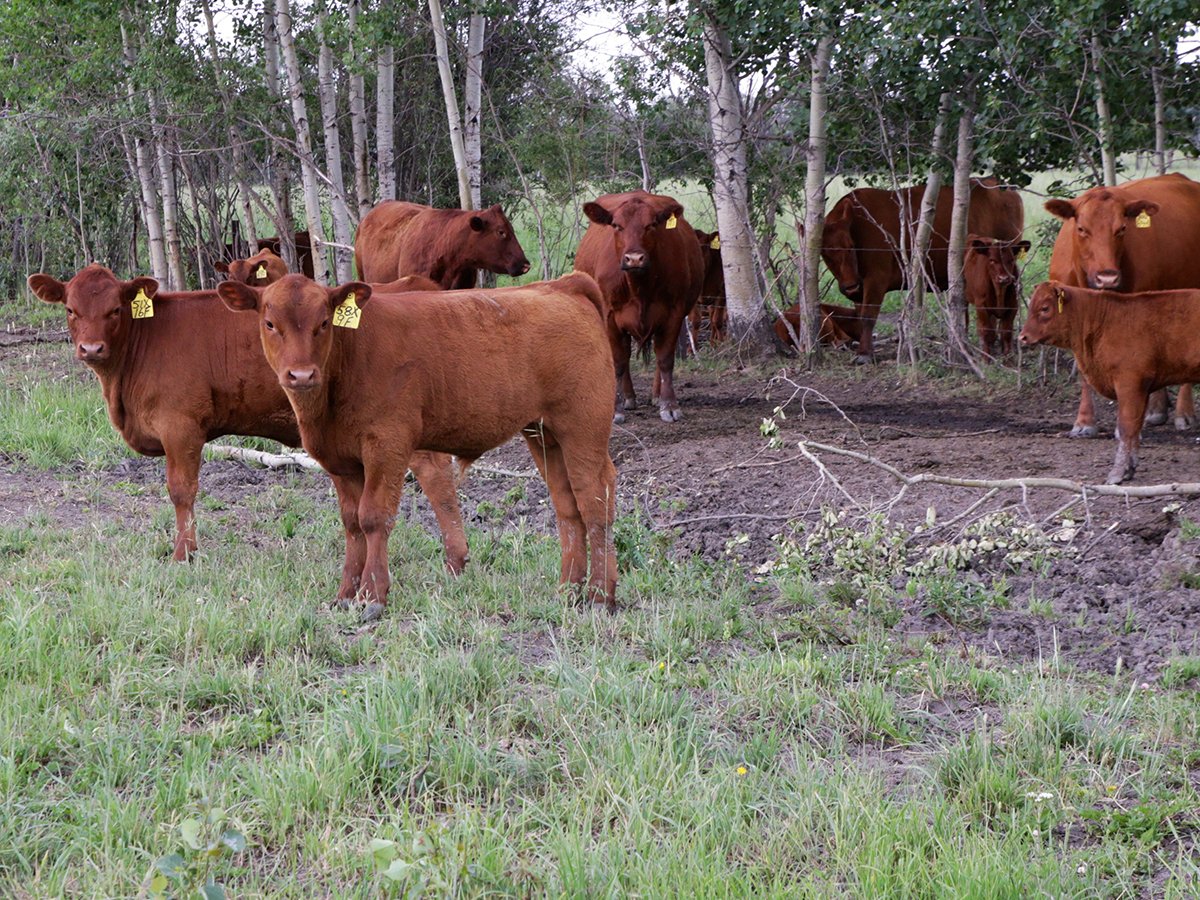
Feeder market continues the climb
For the week ending Aug. 30, Western Canadian feeder cattle markets traded $4-8 per hundredweight higher on average.
Canadienne dairy cattle, English large black pigs and poultry varieties.
He is looking for animals that produce good meat and show wide diversity rather than a narrow genetic pattern, as do many modern livestock breeds.
Form follows function, he said.
“If they are selected for a certain thing, you will get a certain type of animal,” he said.
“Heritage genetics fit our low input management.”
His profits may be lower than his neighbours, with their high performing cattle, hogs and market lambs, but he said his input costs are considerably lower.
“I started with expert advice, where they said profit is tied to producing more pounds faster.
I question whether these high gaining ones are more efficient,” he said.
Lyster has worked with Alberta Agriculture on cost of production surveys and placed animals on test on high energy rations and pasture programs.
In his program, where the livestock survives on pasture and forage, he found he could feed three Dorset ewes that produced three lambs cheaper than he could raise two Suffolk ewes that lambed twins.
He also likes his 100 Dorset ewes because they lamb out of season so he can provide lambs at different times of the year. He also has about 20 Shropshire ewes, a black faced breed.
Horned Dorsets are an old English white breed. They grow wide curving horns that look like wild sheep. The lambs are born with the beginnings of little horns.
Lyster is primarily a seed stock producer selling rams and ewes from Vancouver Island to Prince Edward Island. His market lambs go to Ontario for customers seeking lightweight lambs to roast whole.
He also sells breeding stock to commercial producers who want to run a grass fed beef or pork programs.
His black English pigs do well living outdoors and have a docile nature.
The hogs are not wanted in commercial plants because they have a black hide, which is undesirable on bacon and hams with a rind.
They are fatter and larger but grow well in pasture programs and seem to prefer grazing grass over eating grain.
Lyster said the black pigs have a strong maternal influence compared to many modern swine breeds, in which hogs are selected for fast growth and performance. These traits come from the sire side and end up sacrificing the maternal qualities.
Rocky is raising Polled Herefords, but the farm has also made room for Irish Kerry cattle, an old black breed, and Canadienne cows. The Lysters milk their Canadiennes and sell some as family cows or for suckling calves.
His animals are registered as rare breeds.
In Europe, producers receive financial support to maintain these bloodlines, but that is not the case in Canada.
Lyster suspects a lot of rare breeds are circulating in commercial herds, but people do not always keep up the paperwork so tracking the purebreds is difficult.
His farm is associated with Rare Breeds Canada and he advertises on the internet so people interested in something different can contact the farm.
It also puts him in touch with others keeping heritage livestock. Breeders like to spread their animals around the country to preserve the genetics.
“We have more rams than we need because we are trying to preserve the genetic lines,” he said.
“If we lose some of these genetics they are lost forever.”
Lyster has imported sheep semen from New Zealand and England, but artificial insemination for ewes is expensive because it requires a lapro-scopic procedure.
He also uses Suffolk horses, another rare breed raised in England and used centuries ago as warhorses to carry armoured soldiers into battle.
Lyster uses his big draft horses to haul feed and manure, which means he doesn’t have to fire up a tractor full time.
“I’m more mechanically inclined if it has four legs.”



